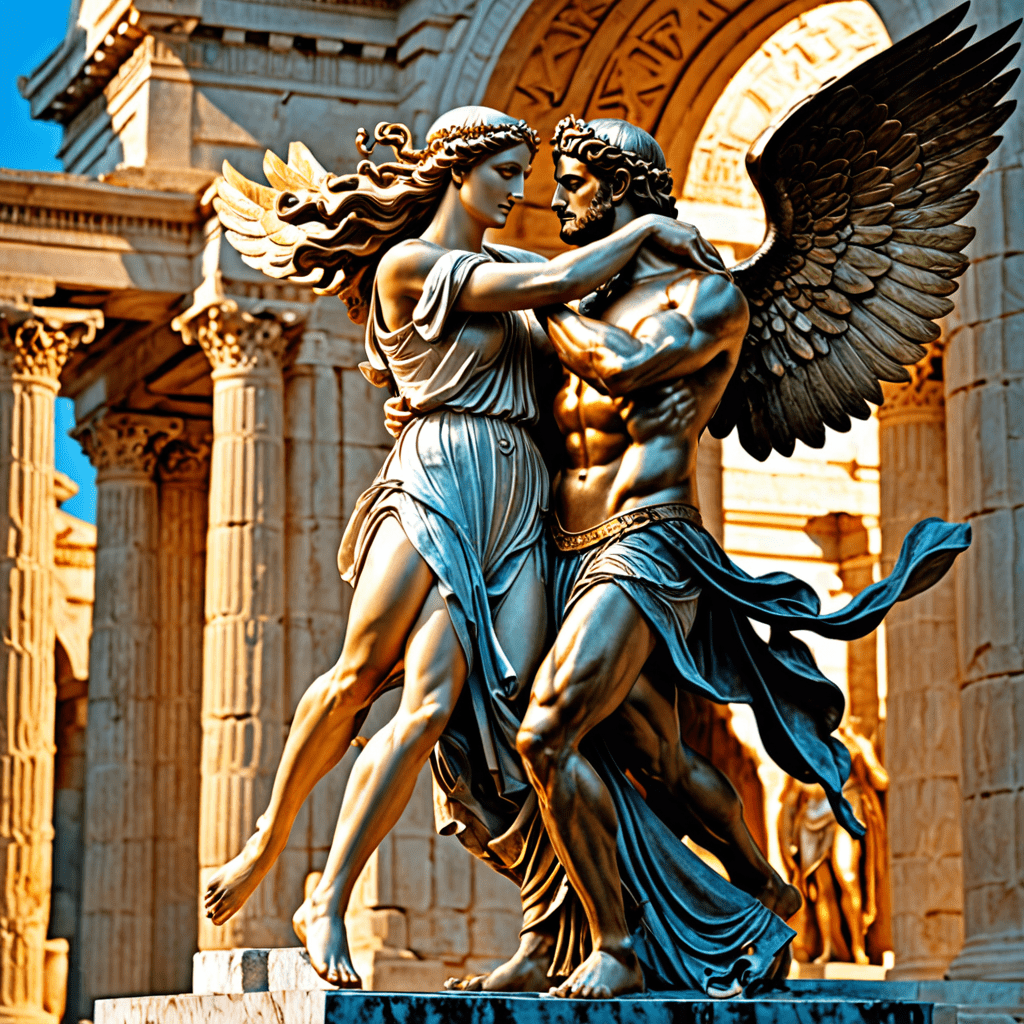The Representation of Love in Greek Mythology
Greek mythology is rich with tales of love that demonstrate both the intensity and complexity of this powerful emotion. Love manifests in various forms in Greek myths, from divine relationships to mortals facing trials in the name of love. Let’s delve into some of the key aspects of how love is represented in Greek mythology.
Divine Love Affairs
In Greek mythology, love often intertwines with the realm of the gods, resulting in divine love affairs that have far-reaching consequences. One of the most famous examples is the tumultuous relationship between Zeus, the king of the gods, and Hera, his queen. Despite Zeus’s many infidelities, Hera’s enduring love and jealousy shape numerous stories within Greek mythology.
Aphrodite, the goddess of love and desire, is another central figure associated with love. Her influence often leads to entangled love stories among gods, goddesses, and mortals. The myth of Aphrodite and Adonis exemplifies the fleeting nature of love and the inevitable pain that can accompany it.
Tragic Love Stories
Many Greek myths revolve around tragic love stories that highlight the complexities of love and the barriers that individuals face in the pursuit of their desires. The tale of Orpheus and Eurydice is a poignant example of a love that overcomes death itself, yet ultimately succumbs to a fatal mistake.
Another iconic tragic love story is that of Pyramus and Thisbe, whose love is forbidden by their feuding families. This narrative serves as the inspiration for Shakespeare’s renowned play, “Romeo and Juliet,” highlighting the enduring relevance of Greek mythological themes in literary works.
Mortal Love and Devotion
Not all manifestations of love in Greek mythology are accompanied by divine interventions or tragic endings. Mortal characters also exhibit profound love and devotion in their own narratives, showcasing the human experience of love in its rawest form.
Jason and Medea’s story encapsulates the complexities of love, betrayal, and revenge intertwined in mortal relationships. Medea’s actions driven by love and subsequent tragedy shed light on the darker aspects of passion and its consequences.
The Symbolism of Love in Greek Mythology
Love in Greek mythology serves as a multifaceted symbol that reflects the intricacies of human emotions and relationships. Whether portrayed through divine encounters, tragic romances, or mortal devotion, these myths delve into the depths of love’s power and its repercussions.
By exploring the representation of love in Greek mythology, we gain insight into timeless themes of longing, sacrifice, and devotion that continue to resonate with audiences across cultures and generations.
Frequently Asked Questions about The Representation of Love in Greek Mythology
What is the significance of love in Greek mythology?
In Greek mythology, love plays a significant role as it often serves as a driving force behind the actions of gods, goddesses, and mortal characters. Love can lead to both great joy and tragic consequences, shaping the narrative of many myths.
How is love depicted in Greek mythology?
Love in Greek mythology is depicted in various forms, including romantic love, familial love, and divine love. The Greek myths showcase the complexities of love, portraying its power to inspire loyalty, jealousy, sacrifice, and betrayal.
Which Greek myths are known for their representation of love?
Several Greek myths are renowned for their portrayal of love, such as the stories of Eros and Psyche, Orpheus and Eurydice, and the relationship between Zeus and Hera. These myths illustrate the different facets of love and its enduring impact on the characters involved.
What can we learn about love from Greek mythology?
Greek mythology offers timeless lessons about love, highlighting themes of passion, devotion, loyalty, and the consequences of succumbing to jealousy or desire. By exploring these myths, we can gain insights into the complexities of human relationships and the enduring nature of love.





